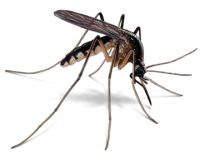Mosquitoes With West Nile Virus Found in Westchester
 This season’s first batch of mosquitoes carrying West Nile Virus in Westchester has been confirmed by the Westchester County Department of Health. The area surrounding the positive mosquito batch in Mount Vernon has been inspected by the Health Department, which has treated nearby catch basins that to protect against further mosquito breeding nearby.
This season’s first batch of mosquitoes carrying West Nile Virus in Westchester has been confirmed by the Westchester County Department of Health. The area surrounding the positive mosquito batch in Mount Vernon has been inspected by the Health Department, which has treated nearby catch basins that to protect against further mosquito breeding nearby.
“West Nile Virus has been present in the Hudson Valley for many years, so this season’s first positive should remind residents to protect themselves and their families by removing standing water around their homes every week and by using repellents daily when spending significant time outdoors,” said Westchester County Executive Robert P. Astorino. “As a county, our proactive and comprehensive strategy to combat mosquito-borne illnesses has proven effective, and includes advice and resources for our residents.”
As of July 20th, when the first positive batch was confirmed in Westchester, 163 batches of mosquitoes from Westchester were tested for West Nile Virus by the New York State Department of Health. The state Health Department has identified 99 positive mosquito pools throughout New York so far this year.
Symptoms of West Nile encephalitis (a severe infection) usually occur from three to 14 days following the bite and include high fever, headache, confusion, muscle aches and weakness, seizures, or paralysis. Most people who are infected with West Nile Virus will not show any symptoms. People over age 50 are at the highest risk for a severe disease.
West Nile Virus is not to be confused with Zika. To date, no mosquitoes in New York State have tested positive for Zika and there have been no locally-acquired cases.
“We will continue to monitor mosquito activity,” said Westchester County Health Commissioner Sherlita Amler, MD, “and we recommend that residents take personal protection measures and remain vigilant in removing standing water on their property where mosquitoes can breed.”
Dr. Amler said that favorite mosquito breeding sites include buckets, plant pot saucers, clogged gutters, pet bowls, old tires, as well as children’s pools and toys. Residents should also minimize spending time outdoors at dawn and dusk, and apply insect repellents according to the label directions when enjoying activities outside.
In addition to larviciding, the county also gave away free fathead minnows and mosquito dunks to residents this spring. The minnows help to curtail the mosquito population in ponds and water by feeding on mosquito larvae and pupae before they develop into adult mosquitoes. The mosquito dunks serve the same purpose in birdbaths, rain barrels and unused pools. Free mosquito dunks are still available, and residents can make arrangements to pick them up by calling 914-813-5000.
Residents who notice large areas of standing water on public property that could serve as potential mosquito breeding grounds should report it to the Westchester County Department of Health by calling (914) 813-5000 or emailing hweb@westchestergov.com. For more information about preventing West Nile Virus, visit health.westchestergov.com/west-nile-virus.

